Browse Exhibits (16 total)
Isabelle Wright | Olfactory Recognition in Brain Glycogen Knockout Mice
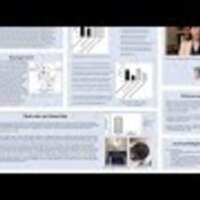
Glucose stored in the brain as the branched polysaccharide glycogen has been reported to play a role in associative learning. The effect of brain glycogen levels on sensory learning in mus musculus is rarely studied and, as a model species for human studies, has implications for learning in people, especially those experiencing low glucose availability to the brain. Wild-type mice and mice without brain glycogen were allowed to investigate the scent of a fruit juice for 5 minutes after a habituation period. Twenty-four hours later, the mice were allowed to investigate the scent of the same juice or a novel juice. The amount of time the mouse spent “exploring” the scent was measured on both days, and the times were compared between genotypes with the hypothesis that wild type mice would spend less time than knockout mice on a familiar scent 24 hours later. However, analysis of this data shows similar results between the two genotypes, implying that brain glycogen may not have a significant impact on sensory learning. When compiled with other behavioral studies with brain glycogen variables, this study improves understanding of the importance of mammalian brain glycogen levels for behavioral learning.
Faculty Mentor: Bartholomew A. Pederson
Biology
Undergraduate
Honors College
Jessica Kiefor | Pandemics and Athletics: How COVID-19 Affected Sport Injury Rehabilitation
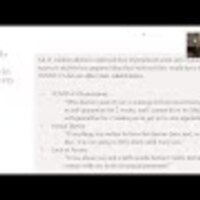
This study sought to better understand the lived experiences of NCAA collegiate athletes who suffered an injury during the COVID-19 pandemic. The study utilized a descriptive phenomenological approach with focus groups. Eleven student-athletes that fit the inclusion criteria were interviewed, and the transcriptions were analyzed for themes. Themes included: (1) emotional stress, (2) impact on interpersonal relationships, and (3) delay in recovery. Subthemes were also identified to further expand the concepts illustrated within the main themes. This research provided insight to the common reactions of a student-athlete post-injury, interpersonal impacts on a student-athlete from both their injury and COVID-19, rehabilitation changes due to COVID-19, and a perspective from injured student-athletes on the current availability and effectiveness of mental-health resources. This information is valuable for athletic trainers, sport psychologists, social workers, and other physical and behavioral health providers working to promote the rehabilitation and well-being of an injured athlete during COVID-19.
Faculty Mentor: Matt Moore, PhD, MSW
Psychological Science
Undergraduate
Honors College
Joseph T. Trentadue | COVID-19 and Mask Wearing Support
Moral Foundations Theory proposes that there are five moral frameworks through which individuals view their world from: care/harm principles, fairness/cheating principles, loyalty/betrayal principles, sanctity/degradation principles, and authority/subversion principles. Research has shown that liberals are more likely to both endorse and utilize moral arguments that are based on the principles of care/harm and fairness/cheating, whereas conservatives are more likely to endorse and utilize moral arguments that are based on the remaining three principles. The current study analyzed the impact that moral framing could have on individuals who selfidentified as either liberal or conservative in relation to mask-wearing and the COVID-19 pandemic. Participants were asked to complete a questionnaire assessing perceptions of COVID-19 regarding individual concern and perceived threat of the virus. Participants were then asked to complete the right-wing authoritarianism scale as well as the social dominance orientation scale to assess participant’s leanings. Participants were then shown one of three messages regarding COVID-19, framed in either a harm avoidance and fairness moral framework or purity and ingroup loyalty moral framework. Participant’s level of persuasion was then assessed, by assessing how often participants intend to wear a mask and how likely participants would be to support a national mask mandate. Results of this study will contribute to previous research that shows moral framing of statements can influence persuasion among a population that might not be likely to support it.
Faculty Mentor: Dr. Andrew Luttrell
Department of Psychological Science
Undergraduate
Honor's College
Kwabena Duah, Lauren Andrews | Synthesis of Open-Chain Analogue of Ipomoeassin F
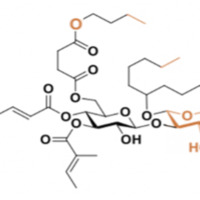
Resin glycosides are the active ingredient in most morning glory-based medicines. They possess numerous biological applications such as laxative, purgative, antibacterial, and antifungal properties. Ipomoeassin F is a novel glycoresin that was isolated from Ipomoea squamosa, and it has a unique structure and anticancer activities with IC50 values in the low nanomolar range for most cancer cell lines. Ipomoeassin F’s mechanism is underexplored due to the structural complexity, large time requirements, and high costs. In order to deepen our understanding of how ipomoeassin F works, decrease cost, labor, and time, we are synthesizing a novel simplified open-chain analogue 1 of ipomoeassin F from readily available D-glucose and L-arabinose. This structure was designed based on previous structure-activity relationship (SAR) studies. Analogue 1 is synthesized by utilizing glycosylation followed by esterification and deprotection reactions to couple the glucosyl donor, (synthesized from D- glucose over 7 linear steps) and the arabinose acceptor (synthesized from L-arabinose over 7 linear steps). Both the glucosyl donor and the arabinose acceptor have been fully synthesized in excellent yields, and the synthesis of analogue 1 is still ongoing. Once synthesis of the target analogue 1 is completed, it is intended to be assayed for biological potentials which could then fuel the design and synthesis of future analogues. This can then be advanced into the field of drug discovery.
Faculty Mentor: Dr. Wei Q. Shi
Department of Chemistry
Undergraduate/Graduate
Honors College
Pauline Robinson-Stevens | The Impact of Social Status on Attributions of Responsibility in Instances of Sexual Assault
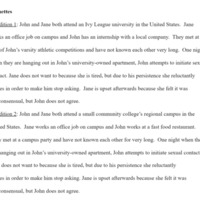
The current research analyzed how a perpetrator’s achieved social status (ex: education level, occupation, accomplishments) influenced participants’ attributions of responsibility for an instance of sexual assault to either the perpetrator or the victim, as well as how observer gender impacted attitudes. I predicted that if an observer (i.e. a participant) was a stranger to both the perpetrator and the survivor, they would be more likely to assign responsibility for the assault to the survivor if the observer identified as male and if the perpetrator was of a higher social status.
Faculty mentor: Dr. Andrew Luttrell
Department of Psychological Science
Undergraduate
Honors College
Taurice Hagemann | Food for the Dogs: Consumption and Wealth Inequality in Bong Joon-Ho's "Parasite"
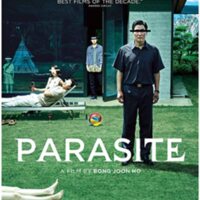
This presentation analyzes the ways in which food throughout the film Parasite symbolizes the divide between rich and poor, using contemporary research to further build on how food is a signifier of class and wealth. From the less wealthy eating prepackaged foods, to the ignorance of wealth and privilege on the part of the upper classes, there is a clear indication throughout the film of food as a signifier of status and class. I take this divide and analyze its significance to the modern culture and society of South Korea, then further apply this to its relevancy in a modern United States. Parasite flourished in American society—both are countries wherein a capitalist ‘meritocracy’ rules for the most part, and an analysis of the culture around the film will show the ways in which the cultures that consumed this media are similar in their class divides.
Faculty Mentor: Emily Ruth Rutter
English
Undergraduate
Honors College
